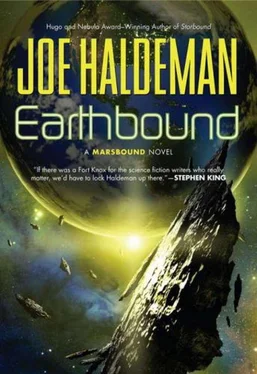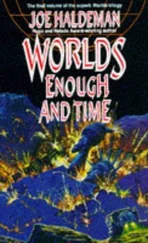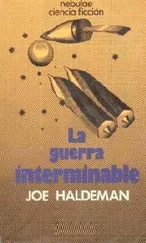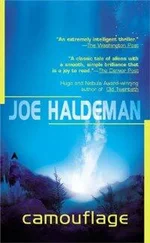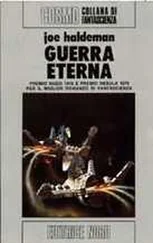“I don’t think so. The armory went into automatic lockdown when the power went off. I don’t think you can get in there without a heavy-duty laser or a cutting torch.”
“The lock would be mechanical,” Paul said, “I wonder if there’s a mechanical way around it… probably not. It wouldn’t have been designed with the idea that the power would go off forever.”
“Do you think it really is forever? I didn’t see the broadcast.”
“I don’t remember the exact wording,” I said. “It sounded pretty final.”
“They said we were to become a ‘donor planet,’ ” Paul said. “So some other world would be getting free power at the expense of our own potential for generating electricity. Or that’s how I interpret it.”
“Are you a scientist?”
“No. Used to be a rocket jock. Currently unemployed.”
I could feel her smile. “Aren’t we all, now.”
I heard a loud clank and muttered curse from inside. Namir had found the crowbar by knocking it over.
He was just visible, coming through the door. Rifle slung over his shoulder, crowbar held like a weapon in his right hand.
“Carmen, you move up to the edge of the wall. Take the safety off. If we draw any fire, shoot high in our direction. We’ll run back as fast as we can.”
“We’ll probably be okay,” Alba said. “I haven’t seen or heard anyone nearby.” She laughed. “Though I didn’t see or hear you, Namir, when I walked in.”
“Good. I’ve been trying to stay invisible. Let’s go.”
I followed them as far as the entrance, then settled in, leaning against the sandbags. Which smelled like the beach, plastic and hot sand.
Alba disappeared immediately into the murk, but I could still see Namir for a minute. Then he was gone.
I was straining to hear, and so jumped at the first loud noise. A good thing I didn’t have my finger on the trigger. It was just Namir attacking the car trunk with the crowbar. Then a loud pop, and a vague sound of metal things clicking against metal in the distance. Then several dull thuds, which I supposed were Namir trying to break into an unbreakable window.
This would be the dangerous time. People would be attracted by the noise and follow the sound.
It stopped, and I watched and listened anxiously for several minutes.
Then something moved on the road in front of me. “Namir?” I whispered.
“It’s me.”
“And Alba.” I couldn’t see her until they passed directly in front of me. An advantage to being black.
“Paul,” Namir stopped, and said to the roof, “is it two hours yet?”
“Just about.”
“I’ll send Elza up to relieve you.” He reached out and touched my arm. “You can get some rest now, Carmen. Give Dustin your rifle and send him back. I’ll bring Alba up to speed.”
I felt a momentary irrational twinge of jealousy. The black widow comes out of the night and claims our protector. But I really could use some sleep.
I woke to pale light and quiet conversation. Got up stiffly from the pile of laundered uniforms I’d used as bedding. Rubbed my face and dragged fingers through my hair and realized I would kill for a toothbrush. Found the rear sink and rinsed my mouth and splashed my face, and went toward the sound.
Alba was talking to Paul. Please let her be ugly.
Of course she was not. Regular features, intelligence in her eyes. A nice figure that I’d gotten to paw before Paul could even fantasize about it.
“You must be Carmen.”
“I don’t know. It’s early yet.” I took her hand. Able was I ere I saw Alba. “This is the stuff from your car?”
“Combined with your pistol, yes. Wish we had more ammunition. At least all the rifles use the same kind.” Two pistols and a new-looking rifle—our two must have been in use—and a mean-looking thing that I guessed was the “riot gun.” I picked it up carefully.
“Ten gauge,” she said. “It makes a hell of a noise, but we only have one box of shells for it. Can’t get them at Kmart.”
“Must kick like a mule.”
“No, it’s recoilless. The rounds are like little rockets. And nobody but me can fire it; it’s keyed to my thumbprint.”
“What will they think of next?”
“I’d like to ask Alba to join us,” Paul said. “She brings expertise and local knowledge as well as weapons.”
We looked at each other, and a certain understanding passed. She wasn’t a danger where Paul was concerned, at least not yet. “And a knapsack,” I said, looking down at the gear. “Tear gas grenades, two canteens. What are these?” I gingerly touched one of four things that looked like rubber balls painted green.
“Flash-bangs. You can temporarily blind and deafen an adversary without hurting him.” She pointed at one. “You click the red dot twice and throw; it’ll go off when it hits the ground.”
“Do they come with earplugs and dark glasses?”
She laughed. “Long gone. We have to improvise.”
There were four boxes of rifle ammunition, smaller than the box for the riot gun. Nothing that I could see for the pistol. “We’re not exactly ready for a war, are we?”
“In more ways than one, no.” She glanced at Paul. “Paul told me what happened to you both yesterday. I’ve never gone through anything like that. I mean, I trained for the eventuality, and thought it through, but I’ve never shot anybody or been shot at.”
“Does the prospect bother you?”
“It makes me sick. Ten percent excited and ninety percent sick.”
“Here comes the expert,” Paul said. Namir came in shirtless, rubbing his face with a towel. His muscles weren’t as well defined as they had been on the starship. No real exercise for a week.
“There’s a story that’s reinvented every war,” he said, “that goes back at least to the nineteenth century… someone asks a sniper what he feels when he takes aim and squeezes, and a man falls dead. He says ‘Recoil.’
“I did that when I was a boy, eighteen or nineteen. We had smart bullets; you kept them on target with a joystick. And there was a kind of joy when you hit the target, hand-slapping and thumbs-up—it was a group effort, and the guy you killed was just a grainy black-and-white image, like a pocket video game.
“But I’ve done the opposite extreme, too. After Gehenna, I killed a man with my bare hands. Tried to strangle him, but he resisted hard. Finally beat his head against the concrete floor until… until he died. I felt a different kind of joy then, fierce. But horror, too, like I could never get my hands clean again.”
“Gehenna,” she said quietly. “We studied it.”
“The bastards killed my mother. And almost everyone I worked with, in Mossad. Tel Aviv, what, seventy years ago?”
“Seventy-one,” she said, good student.
“And you’ve been shot, too,” I said.
He nodded. “New York City. I stepped off a slidewalk and a woman was waiting for me. One shot, point-blank in the chest.”
“Killed you?”
“Yeah, but I was back in a couple of minutes. A pro would’ve gone for the head.”
“Was she a spy like you?”
“Just a hire, we think. My bodyguard did go for the head—‘two in the chest, one in the head,’ as we were taught. So we couldn’t find out from her who she was, who she worked for. He got hell for that, demoted. Unfair.”
He picked up the new rifle and removed the magazine and the bolt, the way he’d showed us, and inspected the bolt minutely. “I’d thought that part of my life was long over.” He slid the top two rounds out of the magazine and put them back, testing the spring with his thumb, and then removed the top round again and set it on the table. “Better to have one less round than jam. Spring is old.”
Читать дальше
